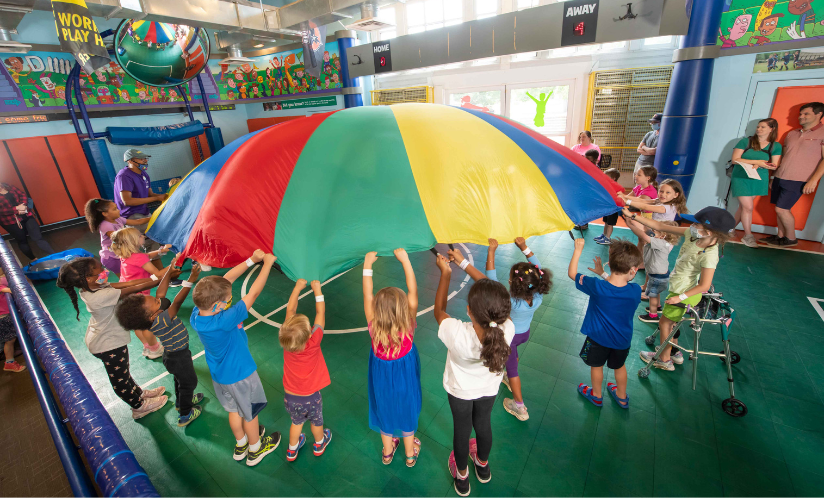
Jean Piaget helped us learn how important play is too young children and their development. It is through play that children learn about and make sense of their world, including their bodies, their communities, and the people in their lives.
We have also learned over the years that there are different types of play and that each impacts how children learn and develop. In particular, free play and guided play often referred to together as playful learning, provide joyful and rich ways experiences for children.
What is Guided Play?
According to the National Association for the Education of Young Children, guided play features two crucial elements: child agency (the child directs the learning) and gentle adult guidance to ensure that the child progresses toward a learning goal.
Guided play is a fun and simple way to incorporate the joyful child-directed aspects of free play while also incorporating important learning concepts into playtime – maximizing your child’s learning – and fun!
Take a peek at some play tips for Guided Play:
1. Find Learning Opportunities in Everyday Activities
Grocery shopping. Doctor appointments. Outdoor adventures. There is an infinite number of activities that you can transform into guided play! Observe your child and the activity they’re partaking in, thinking about what exactly in that activity is similar to skills and concepts they are learning based on their age and development.
Play Tip: If your kids are playing catch with a ball, encourage them to count how many times they can throw back and forth without dropping the ball – and then beat that record!
2. Ask Open-Ended Questions
Open-ended questions engage your child in thinking that encourages them to form and share their opinions, determine cause and effect, make educated guesses, and more!
Play Tip: If you’re playing in a pool, don’t just ask your child which objects they think will sink or float, but ask them why they think that!
3. Compare & Contrast
Comparing and contrasting is a simple way to encourage your child to think critically, make connections, and spot differences between shapes, colors, and more in early life!
Play Tip: If you’re vacationing at the beach, compare the color of sand before and after you’ve splashed a bucket of ocean water on it before making a sand castle.
Guided play is a simple technique that parents can easily incorporate into play while at home, on vacation, on the go, and more!